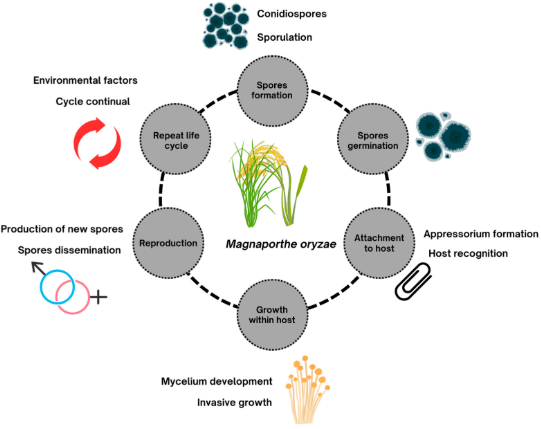Evaluating the Molecular Analysis of Rice Plant Response to Rice Blast Disease: Genetic and Hormonal Regulation
Keywords:
Rice Blast, Magnaporthe Oryzae, Gene Expression, Hormonal Regulation, Disease ResistanceAbstract
The rice blast disease caused by Magnaporthe oryzae has been the major disease affecting the production of rice in most parts of the world resulting in heavy loss in yield. Although various studies have concentrated on resistance to disease, there do not exist adequate studies on the mechanisms involved in the defense response of rice, at the molecular level. This research project will help to solve this gap, since the genetic and hormonal regulatory processes of rice plant resistance toward rice blast will be investigated. Mainly it is aimed at assessing the flight, to what extent defense response genes and hormonal signaling (salicylic acid [SA], jasmonic acid [JA], and ethylene) in rice are involved in immune response. The experiment involved three different genotypes exhibiting different degrees of resistance and all the parameters such as growth, disease intensity, gene expression and levels of hormones were measured at 24, 48, and 72 hours after inoculation. ANOVA was used to analyze data and p < 0.05 was regarded as having significant results. Among the key findings, it was indicated that Genotype 3 had a greater resistance, whereby disease severity was significantly reduced (p < 0.0001), gene expression of all three pathways significantly increased (SA: F = 225.52, p < 0.0001; JA: F = 206.60, p < 0.0001; ethylene: F = 416.86, p < 0.0001) and concentrations of SA (32.77 Such findings highlight the significance of genetic and hormonal aspects of rice blast resistance since Genotype 3 possesses the prospect of developing more robust rice species. The study provides useful information on the molecular mechanism of resistance that presents hopeful measures of controlling rice blast diseases.



















